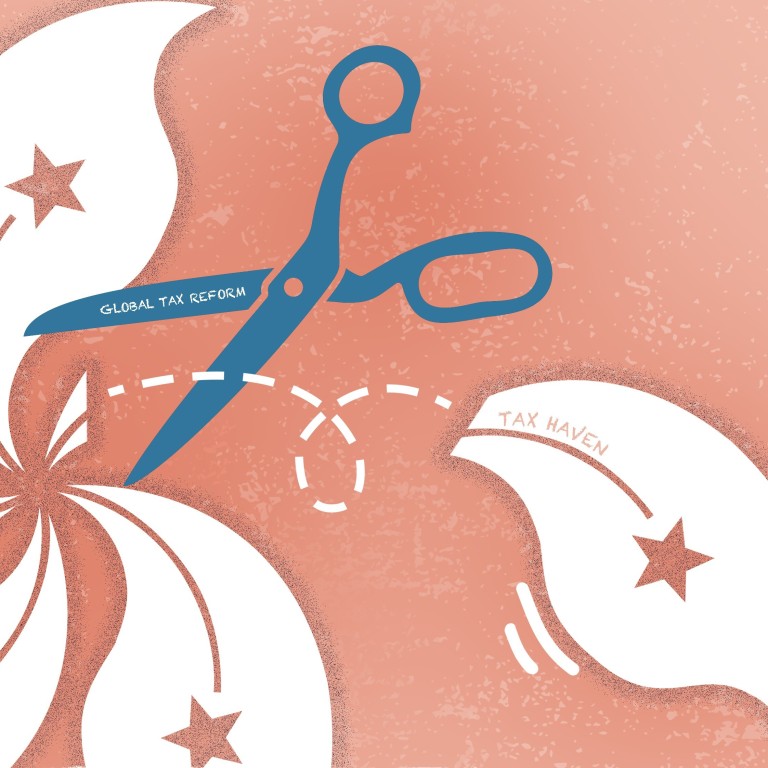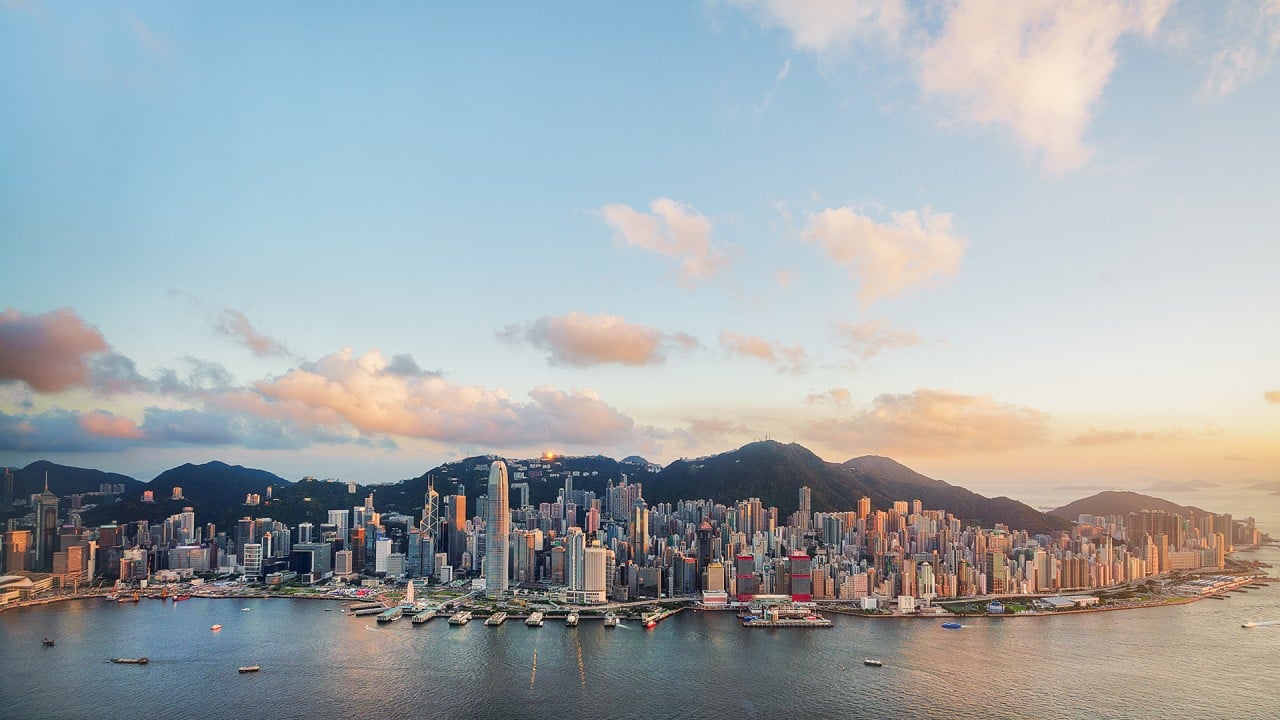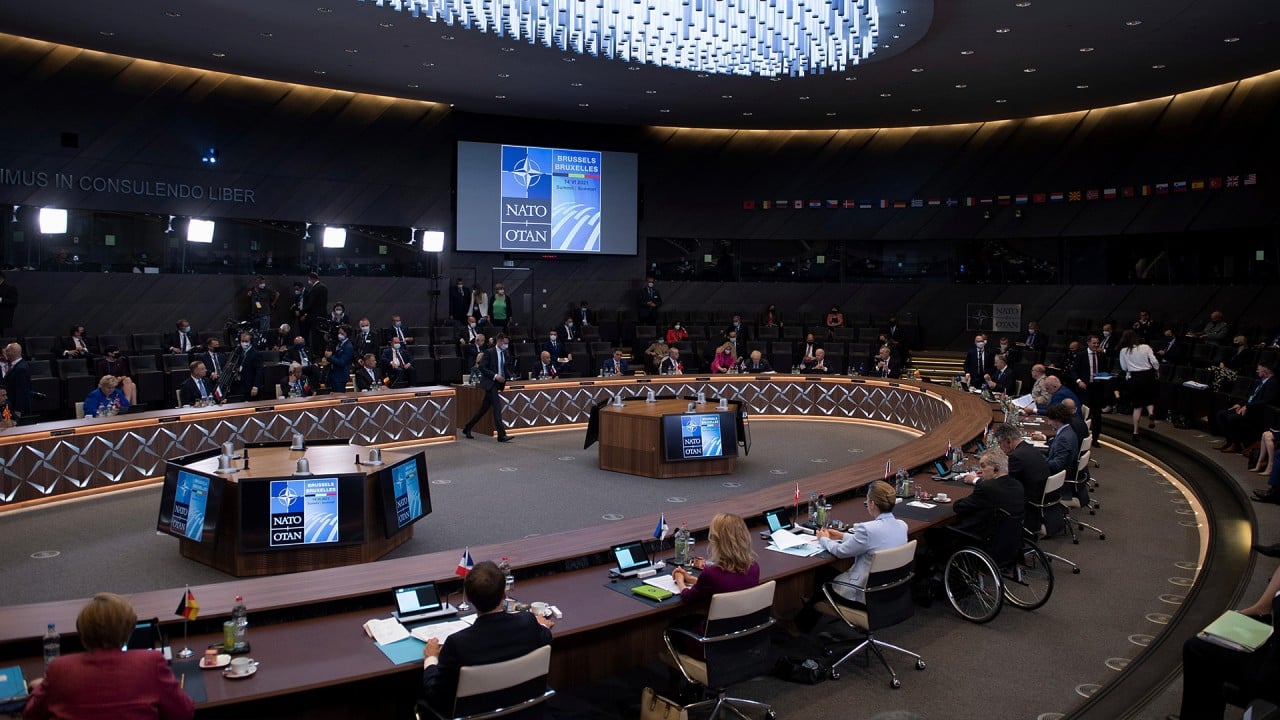
Could Hong Kong’s status as a business hub be threatened under global minimum tax reform?
- Hong Kong’s headline tax rate is 16.5 per cent, but various concessions allow companies to lower their effective rate to below 15 per cent
- Although not a major destination for tax-shy firms in the tech industry, the impact of a proposed tax floor on the city remains unclear
Hong Kong’s low tax rate has been a major incentive for American businessman Nicholas Appel to live and work in the city for the past 25 years.
But along with challenges like the city’s high cost of living, the prospect of higher taxes under a minimum global corporate tax rate is one more reason to wonder whether it is worth staying.
“We really love Hong Kong but it’s not a sustainable place to live in if you don’t have income to support it,” Appel said. “If the profitability of a business as a result of a change in taxes were to become negative to a point of not making sense, then we wouldn’t think twice about staying.”
Many analysts say Hong Kong’s advantages – proximity to mainland businesses, a robust legal system and its own freely convertible currency – will continue to outweigh the disadvantages. The city remains the key conduit for capital flows into and out of mainland China, accounting for about 70 per cent of the total.
But generous perks for foreign businesses have seen Hong Kong gain a reputation as Asia’s No 1 tax haven, and it remains unclear how the global reform will affect the city’s tax environment.
Appel arrived in the city some 25 years ago as the general manager of an international steel trading company, brokering deals between mainland steel mills – who produce more steel than all other countries combined – and construction projects around the world.
The businessman said the impact from the Covid-19 pandemic evokes memories of the 2008 global financial crisis, when he started his own steel trading and consultancy firm despite wild swings in the commodity markets.

01:54
Hong Kong loses crown to Turkmenistan’s Ashgabat as world’s most expensive city
But the challenges faced by his business seem even greater today, making the city’s competitive taxes an important consideration about his future in the city.
So when 132 nations under the umbrella of the Organisation for Economic Cooperation and Development (OECD) agreed on an income tax rate of at least 15 per cent last week, it served up another potential cost to absorb.
The OECD framework on Base Erosion and Profit Shifting (BEPS) contains “two pillars”, the first of which is aimed at making multinational companies – particularly American technology giants such as Google, Apple and Facebook – pay taxes in the countries in which they derive their profits and not just where they are headquartered.
Under pillar two of the deal, a minimum corporate tax rate of 15 per cent will be applied on a country-by-country basis to ensure all multinational firms pay at least some tax in their home countries. This will reduce their ability to shift profits to low-tax jurisdictions where they may have set up regional headquarters.
How the new reform will impact Hong Kong is uncertain, especially since the city is not a major destination for tax-shy firms in the technological and pharmaceutical industries that are being targeted by the deal, according to Steven Leslie, lead analyst for financial services at The Economist Intelligence Unit.
The city’s headline tax rate of 16.5 per cent is actually above the 15 per cent global minimum tax, making it unnecessary for the city to raise tax rates. In any case, the proposed corporate tax floor would not apply to multinationals with group revenue below €750 million (US$892 million), so smaller companies would not be within the scope of the rules.
This would effectively curtail the concessions and incentives offered and the effectiveness of Hong Kong’s fiscal policies
But some of the tax perks Hong Kong uses to attract foreign investment are likely to be eroded, because specific concessions and exclusions allow some companies to lower their effective tax rate to below 15 per cent.
For example, the tax rate for the first HK$2 million (US$258,000) of corporate profits is only 8.25 per cent. Only profits above that amount are subject to tax of 16.5 per cent. There is also no tax on offshore interest income or share trading profits derived from transactions executed on an exchange abroad.
Under the new global tax system, if an 8.25 per cent effective tax is collected by the Hong Kong government, the taxing rights to the remaining 6.75 percentage points of the global minimum rate would be passed on to the jurisdiction where the foreign company is headquartered. So the company would still need to pay an overall tax rate of 15 per cent, meaning it woul d not make much difference whether Hong Kong offers concessions or not.
“This would effectively curtail the concessions and incentives offered and the effectiveness of Hong Kong’s fiscal policies,” said Jonathan Culver, tax partner at Deloitte China. “This is likely to be negative for Hong Kong overall, [and] some companies may exit Hong Kong.”

06:33
G7, Nato rhetoric mark ‘seismic shift’ between China and the West
In similar fashion, foreign firms could be potentially affected in neighbouring Macau, which has a headline tax rate of 12 per cent, said Raymond Tang, Macau tax leader at Deloitte. The casino hub is no longer viewed as a low-tax jurisdiction after it abolished all tax benefits for offshore companies this year.
“But the global minimum tax could curtail Macau’s ability to offer fiscal incentives,” Tang said. “Macau is attempting to diversify its economy and has plans to increase the level of financial services offered.”
George Leung, CEO of the Hong Kong General Chamber of Commerce, cautioned that more time was needed to ascertain the impact of the tax reform, especially as Hong Kong offered fewer tax breaks than its major competitors.
“A number of other global financial and business centres have an effective tax rate that is actually lower, such as Singapore because of the vast array of concessions that it provides,” Leung said.
“Therefore, if everyone is following the same floor rate, the change could even work to Hong Kong’s advantage. While the intention of such rules is to prevent tax erosion, some countries may also consider raising their own corporate tax rates.”
Hong Kong is ranked the seventh-largest tax haven in the world and the largest in Asia, according to the Tax Justice Network, a British-based advocacy group campaigning for fair taxation.
At the end of the day, the push for a minimum global tax is as much about larger countries boosting tax revenue for domestic spending as it is fairness, said Chong Tai-leung, an associate professor in the department of economics at the Chinese University of Hong Kong.
“The US and some European countries are turning to minimum taxes as a means to preserve their tax base given the massive fiscal spending made by their governments,” said Chong. “So for any state that wants to attract foreign firms with low taxes, it’s going to be difficult for them to do so.”
We are coming from places with taxes as high as 45 per cent
At a Group of 20 summit in 2009, French President Nicholas Sarkozy and German Chancellor Angela Merkel pushed for a resolution to name and shame tax havens that failed to end bank secrecy.
The Chinese delegation, which was led that year by President Hu Jintao, said it supported global efforts to tackle tax havens, but did not expect Hong Kong and Macau to be counted as such.
While companies in Hong Kong are watching developments closely, a modest increase in tax is unlikely to send expat business owners scuttling away, as most face much higher rates at home.
“I’ll have to keep watch over it, but I don’t think the tax change will have much of an impact, ” said Terri Appel, an executive director of an international school network for the expat community and Nicholas’ wife. “ We are coming from places with taxes as high as 45 per cent.”

